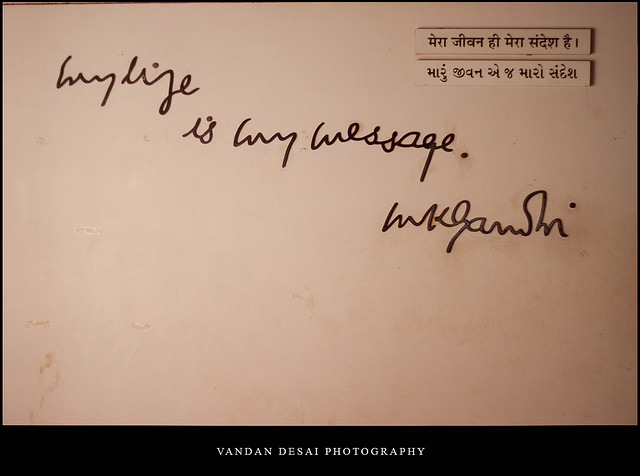The greatest disappointment of Gandhi’s life
Dr. V.K.Maheshwari, M.A. (Socio, Phil) B.Sc. M. Ed, Ph.D.
Former Principal, K.L.D.A.V.(P.G) College, Roorkee, India.
“Generations to come, it may well be, will scarce believe that such a man as this one ever in flesh and blood walked upon this Earth.”― Albert Einstein(On the occasion of Mahatma Gandhi’s 70th birthday.)
A new chapter in Indo-British relations opened with the victory of the Labour Party in 1945. During the next two years, there were prolonged triangular negotiations between leaders of the Congress and the Muslim League under M.A. Jinnah and the British government culminating in the Mountbatten Plan of June 3, 1947, and the formation of the two new dominions of India and Pakistan in mid-August 1947.
It was one of the greatest disappointments of Gandhi’s life that Indian freedom was realized without Indian unity. Muslim separatism had received a great boost while Gandhi and his colleagues were in jail, and in 1946–47, as the final constitutional arrangements were being negotiated, the outbreak of communal riots between Hindus and Muslims unhappily created a climate in which Gandhi’s appeals to reason and justice, tolerance and trust had little chance. ). Later that year, Britain granted India its independence but split the country into two dominions: India and Pakistan. Gandhi strongly opposed Partition, but he agreed to it in hopes that after independence Hindus and Muslims could achieve peace internally. Amid the massive riots that followed Partition, Gandhi urged Hindus and Muslims to live peacefully together.
In January 1948, Gandhi carried out yet another fast, this time to bring about peace in the city of Delhi. On January 30, 12 days after that fast ended, When partition of the subcontinent was accepted—against his advice—he threw himself heart and soul into the task of healing the scars of the communal conflict, toured the riot-torn areas in Bengal and Bihar, admonished the bigots, consoled the victims, and tried to rehabilitate the refugees. When persuasion failed, he went on a fast. He won at least two spectacular triumphs; in September 1947 his fasting stopped the rioting in Calcutta, and in January 1948, he shamed the city of Delhi into a communal truce. A few days later, on January 30, while he was on his way to his evening prayer meeting in Delhi, he was shot down by Nathuram Godse, a young Hindu fanatic. Godse approached Gandhi on 30 January 1948 during the evening prayer at 5:17 pm. When Godse bowed, one of the girls flanking and supporting Gandhi, Abha Chattopadhyay, said to Godse, “Brother, Bapu is already late” and tried to put him off, but he pushed her aside and shot Gandhi in the chest three times at point-blank range with a Beretta M 1934 semi-automatic pistol chambered in .380 ACP bearing the serial number 606824. Gandhi died a couple of hours later. Godse himself shouted “police” and surrendered himself.
During the subsequent trial, and in various witness accounts and books written thence, the reasons cited for carrying out the assassination were –
Godse felt that it was Gandhi’s fast (announced in the second week of January) which had forced the cabinet to reverse its earlier recent decision not to give the cash balance of Rs. 55 crores to Pakistan on 13 January 1948. (The Government of India had already given Pakistan the first instalment of Rs. 20 crores as per their agreement to give Pakistan Rs. 75 crores in the division of balance money upon partition. However, in January 1948, the cabinet of Indian government decided to withhold the second instalment after self-styled liberators from Pakistan invaded Kashmir with covert support from the Pakistani army[. Godse, Apte and their friends felt that this was appeasing Pakistani Muslims at the expense of Hindus in India. This decision of Gandhi and Nehru had also caused Vallabhbhai Patel to submit his resignation. Interestingly, Gandhi’s fast was for the restoration of Hindu-Muslim peace and continued for three days after the cabinet announced its decision to give the money to Pakistan. It is possible that Godse may not have known of this, however this cannot be said for certain.
Godse felt that the sad situation and suffering caused during and due to the partition could have been avoided if the Indian government had lodged strong protests against the treatment meted out to the Minorities (Hindus and Sikhs) in Pakistan. However, being “under the thumb of Gandhi” they resorted to more feeble ways. He also felt that Gandhi had not protested against these atrocities being suffered in Pakistan and instead resorted to fasts. In his court deposition, Godse said, “I thought to myself and foresaw I shall be totally ruined, and the only thing I could expect from the people would be nothing but hatred … if I were to kill Gandhiji. But at the same time I felt that the Indian politics in the absence of Gandhiji would surely be proved practical, able to retaliate, and would be powerful with armed forces.”
In Godse’s own words during his final deposition in the court during the trial, ‘”…it was not so much the Gandhian Ahimsa teachings that were opposed to by me and my group, but Gandhiji, while advocating his views, always showed or evinced a bias for Muslims, prejudicial and detrimental to the Hindu Community and its interests. I have fully described my Point of view hereafter in detail and have quoted numerous instances, which unmistakably establish how Gandhiji became responsible for a number of calamities which the Hindu Community had to suffer and undergo”
The next day, roughly 1 million people followed the procession as Gandhi’s body was carried in state through the streets of the city and cremated on the banks of the holy Jumna River.

